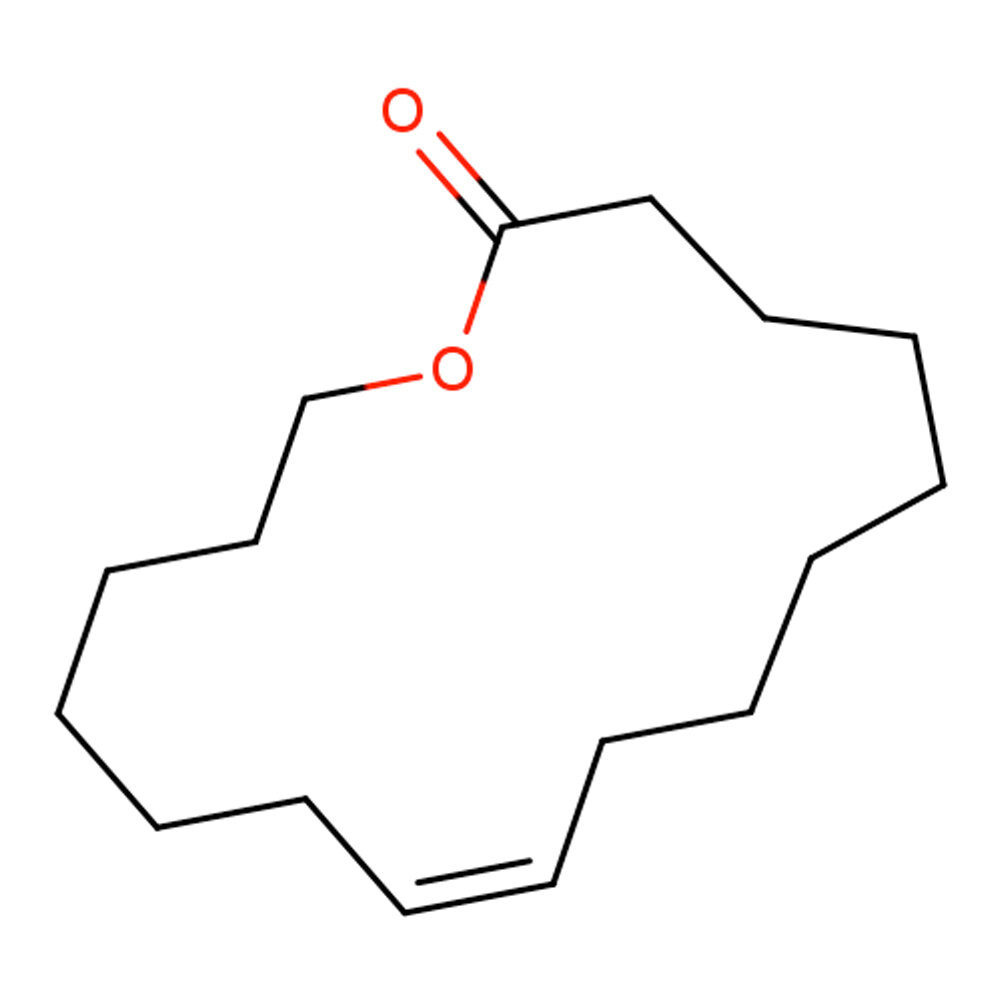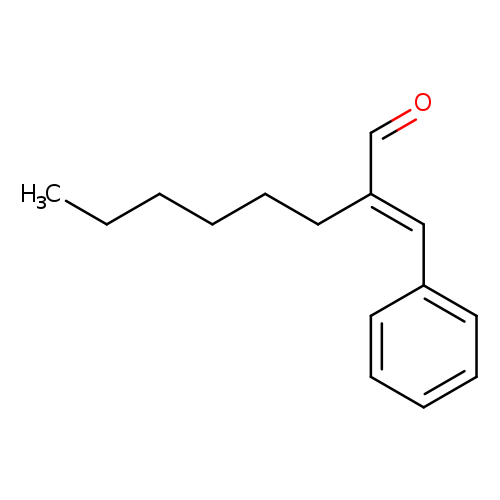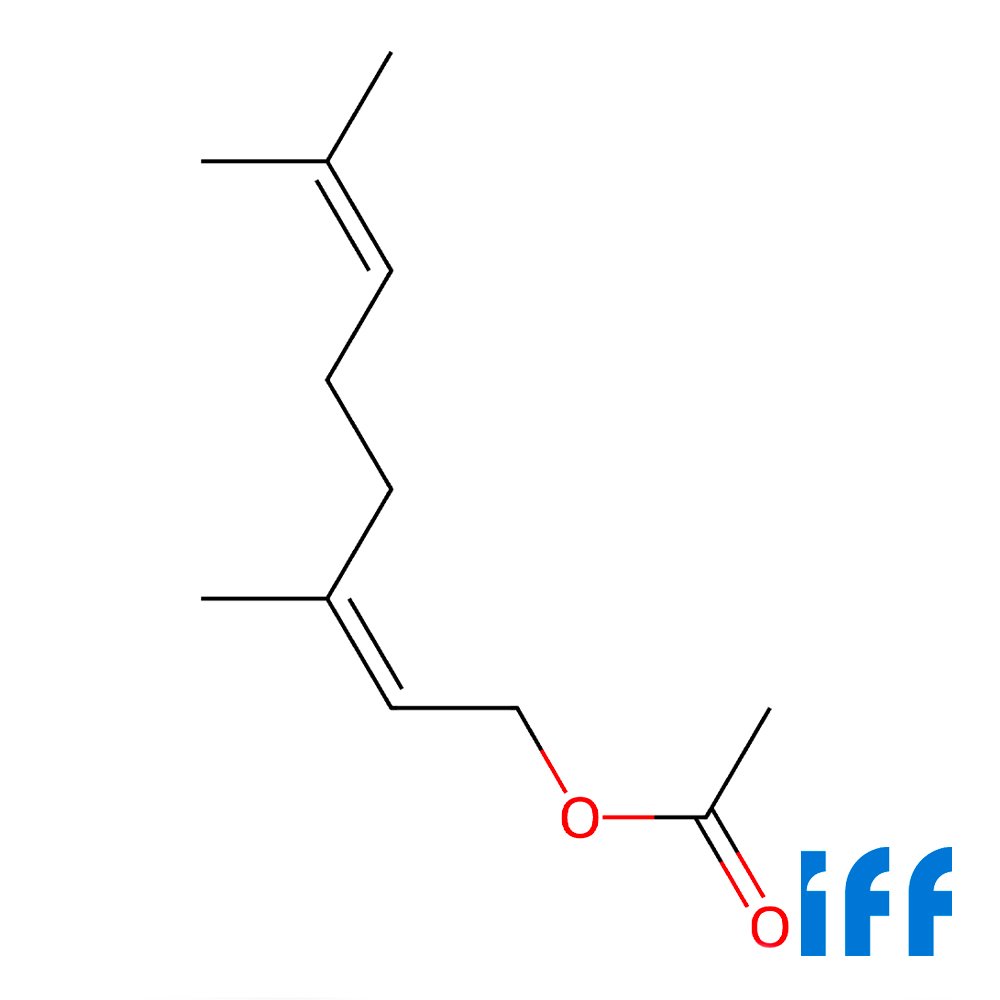Ambrettolide
Premium Synthetic Ingredient for Perfumery
Ambrettolide (CAS 28645-51-4) is a synthetic macrocyclic musk lactone with a rich ambrette-like scent and exceptional fixative power. Structurally related to the natural musk found in Ambrette seed oil, Ambrettolide is not chemically identical to that material but shares key olfactory features. With its smooth, slightly fruity character and musky-rosy undertone, it is widely regarded as one of the finest and most elegant synthetic musks available.
Used in trace amounts, it synergizes with other musks, boosting radiance and roundness, especially in floral-fruity and white musky compositions.
Premium Synthetic Ingredient for Perfumery
Ambrettolide (CAS 28645-51-4) is a synthetic macrocyclic musk lactone with a rich ambrette-like scent and exceptional fixative power. Structurally related to the natural musk found in Ambrette seed oil, Ambrettolide is not chemically identical to that material but shares key olfactory features. With its smooth, slightly fruity character and musky-rosy undertone, it is widely regarded as one of the finest and most elegant synthetic musks available.
Used in trace amounts, it synergizes with other musks, boosting radiance and roundness, especially in floral-fruity and white musky compositions.
Premium Synthetic Ingredient for Perfumery
Ambrettolide (CAS 28645-51-4) is a synthetic macrocyclic musk lactone with a rich ambrette-like scent and exceptional fixative power. Structurally related to the natural musk found in Ambrette seed oil, Ambrettolide is not chemically identical to that material but shares key olfactory features. With its smooth, slightly fruity character and musky-rosy undertone, it is widely regarded as one of the finest and most elegant synthetic musks available.
Used in trace amounts, it synergizes with other musks, boosting radiance and roundness, especially in floral-fruity and white musky compositions.
Technical Ingredient Overview
🏭 Manifacturer - IFF
🔎 Chemical Name — Oxacycloheptadec-10-en-2-one
🧪 Synonyms — Isoambrettolide, Ambrettozone, Hexadec-9-en-1,16-lactone, Moschus lactone, Lanbrettolide, Scentolide
🧬 Chemical Formula — C₁₆H₂₈O₂
📂 CAS — 28645-51-4
📘 FEMA — 4145
⚖️ MW — 252.4 g/mol
📝 Odor Type — Musky
📈 Odor Strength — Medium
👃🏼 Odor Profile — Soft musky-lactonic with pear, litchi, rosy, and ambrette-like nuances
⚗️ Uses — Fine fragrance fixative, musky enhancer, floral and fruity blend support
🧴 Appearance — Colorless to pale yellow liquid
What is Ambrettolide?
Ambrettolide is a synthetic macrocyclic musk known for its refined, diffusive musky aroma. Belonging to the lactone class, this 17-membered ring compound bridges functionality and elegance, offering exceptional substantivity and smooth olfactory texture. Its biodegradable profile and lack of nitro or polycyclic structures make it a hallmark of modern musk design.
Widely used in perfumery for its naturalistic musk character and elegant diffusion. Although often confused with the true natural musk lactone found in ambrette seed (CAS 7779-50-2, (Z)-hexadec-7-en-16-olide), the commercially available iso-Ambrettolide (CAS 28645-51-4) is a synthetic analog with superior oxidative stability and more consistent olfactory performance.
Ambrettolide represents one of the few musk materials that performs well even at trace concentrations—making it an ideal fixative for modern compositions where clean, animalic transparency is desired.
Historical Background
Ambrettolide was first synthesized in 1927, inspired by the natural musky-lactonic essence of ambrette seed oil (Abelmoschus moschatus). The synthetic alternative quickly gained traction for its consistent quality, low toxicity, and ethical superiority over natural animal musks. Early innovations by Firmenich and later production by Givaudan cemented its role in macrocyclic musk evolution (Sell, 2014).
Its name and profile also echo back to Exaltolide (CAS 502-72-7), a structurally related musk lactone, both standing at the forefront of sustainable musk chemistry in modern perfumery.
Olfactory Profile
Scent Family: Musky-Lactonic
Main Descriptors: Creamy, soft musk, fruity (pear, litchi), floral-ambrette nuance
Volatility: Medium
Tenacity: High — up to 1 month on blotter
Function: Fixative, enhancer, blender
Applications in Fine Fragrance:
Ambrettolide excels in floral and fruity floral compositions, providing warmth and volume to delicate accords. Its softness allows it to act as a textural base note, enhancing iris, rose, magnolia, and fruity top notes without overpowering them. Often paired with Exaltolide, Galaxolide, or Ethylene Brassylate, it creates layered musky bases with elegance and longevity.
Performance in Formula:
In compositions, Ambrettolide imparts significant diffusion while also providing fixative strength. It harmonizes well in both alcohol- and oil-based systems and is compatible with a wide pH range, making it useful in body care, fabric care, and haircare applications.
Industrial & Technical Uses
Due to its low reactivity and pleasant scent profile, Ambrettolide is employed across:
Fine fragrance bases
Fabric softeners and conditioners
Shower gels and shampoos
Candles and scented oils
Its biodegradable nature and low bioaccumulation risk make it especially favored in environmentally conscious formulations.
Regulatory & Safety Overview
IFRA (51st Amendment): No specific restrictions (IFRA, 2023)
ECHA: Not classified as hazardous; low aquatic toxicity (ECHA, 2024)
REACH: Registered; not considered a Substance of Very High Concern (SVHC)
FEMA (4145): Approved for use in flavor applications at controlled levels
Allergenicity: Non-sensitizing in standard patch testing (Givaudan, n.d.)
Biodegradability: Readily biodegradable under OECD guidelines
References
ECHA. (2024). Oxacycloheptadec-10-en-2-one – Substance Information. European Chemicals Agency. https://echa.europa.eu
Givaudan. (n.d.). Ambrettolide ingredient detail. https://www.givaudan.com/fragrance-beauty/eindex/ambrettolide
International Fragrance Association (IFRA). (2023). Standards – 51st Amendment. https://ifrafragrance.org
Sell, C. S. (2014). The Chemistry of Fragrances: From Perfumer to Consumer (2nd ed.). Royal Society of Chemistry.






